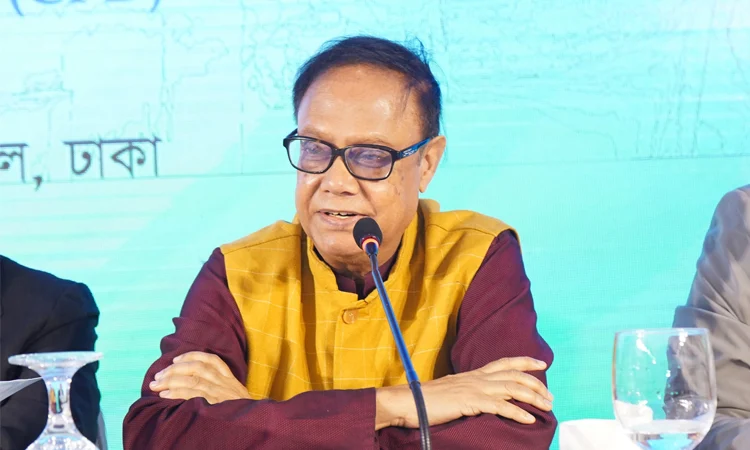News Flash
News Flash

DHAKA, Aug 10, 2025 (BSS) – Listing a series of measures taken by the central bank after the changeover of power last year, Bangladesh Bank Governor Dr Ahsan H Mansur today said that the country’s banking sector has managed to pull back from the brink over the last one year.
Speaking at a seminar titled 'Interim Government’s 365 Days' organised by Centre for Policy Dialogue (CPD), the governor said the sector was “right at the edge of the cliff” when the interim government took office in August last year.
Labour and Shipping Adviser Brig Gen (retd) M Sakhawat Hossain spoke at the dialogue as the chief guest. CPD distinguished fellow Professor Mustafizur Rahman presided over it.
“Our two main challenges were to stabilise the macroeconomy and reform the financial sector. Reforms can’t be done in a year, but we’ve started these in every area,” Mansur said.
Upon taking charge, the governor said he held meetings with international financial institutions to maintain lines of credit.
“We assured them that we’ll repay every penny we owed, and we did accordingly. Our situation didn’t turn like Sri Lanka or Pakistan,” he said.
According to him, the biggest support in debt repayment came from remittance inflows alongside export earnings over the past year.
Dr Mansur said Bangladesh has never defaulted on its foreign payment obligations and would not do so in the future.
He said the country had accumulated dues but made commitments to settle them as quickly as possible.
“Remittances provided tremendous support, exports performed well, and every bank was instructed to meet obligations,” he added.
On inflation, the central bank governor said that controlling it was a major challenge.
Since August 14 last year, Bangladesh Bank is yet to sell a single dollar from reserves, instead buying dollars at Taka 122 despite pressures to adjust the rate.
Inflation has since fallen below 10%, and Mansur expects it to drop below 5% in the future.
While the balance of payments is now in surplus, but the economy is yet to attract desired investments, he noted.
On why no banking commission was formed, Mansur said three separate taskforces have been formed to reform the banking sector, central bank operations, and recover laundered money.
Mansur said recovering funds siphoned abroad is proving the most challenging as it requires coordination with some 8 to 10 ministries.
He said major legal reforms are also underway, including extensive amendments to the Bank Companies Act, fundamental changes to the Money Laundering Act — adding asset recovery provisions — and broad revisions to the Bangladesh Bank Order to enhance the central bank’s accountability and autonomy.
Amendments will also be made to the Deposit Insurance Act and the Money Loan Court Act to resolve long-pending loan default cases, he added.
The central bank also plans to amend the Bangladesh Bank Resolution Ordinance to allow it to acquire any bank facing liquidity crises due to irregularities, he said, adding, “There will be no more leniency.”
Mansur informed that a single body would be created for “360-degree monitoring” of all banks to tackle irregularities in a coordinated manner.
The governor further stressed initiatives to make Bangladesh a cashless economy, including the promotion of QR codes, wider credit card usage, expansion of nano-loans, banking education for school students, Taka 200 student bank accounts, housing reforms, revenue department restructuring, and lowering smartphone prices to expand digital banking coverage.